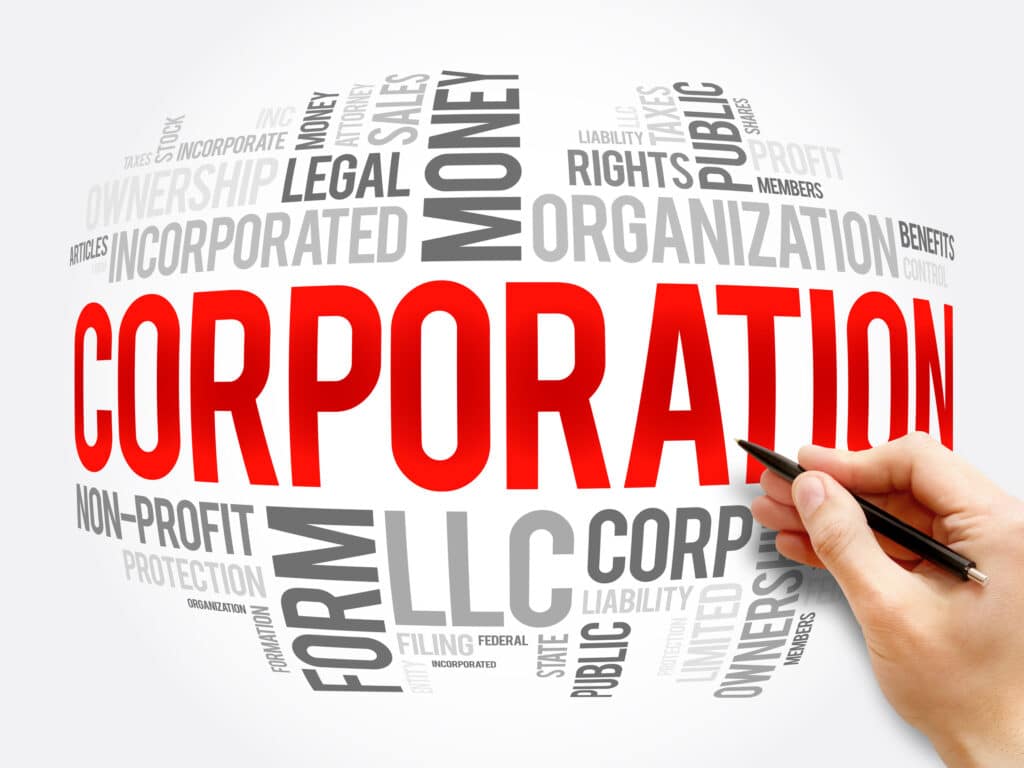Determining the best business entity type for your business can be overwhelming. Most business owners are aware of the common LLC and C-Corporation options that many businesses fall under; however, another viable and sometimes tax saving option is the S-Corporation. Though an S-Corp can have multiple advantages, there are also a handful of disadvantages to be aware of before making the change of entities.
Is an S-Corp Right for Your Business?
When determining if an S Corporation is the correct decision for your business, there is a lot to understand and consider. First and foremost, as a business owner, you will need to understand what exactly an S Corporation is and what qualifications must be met before becoming one.
S Corporation: a closely held corporation that makes an election to be taxed under Subchapter S of Chapter 1 of the Internal Revenue Code. It is considered a pass-through taxation concept, meaning shareholders are taxed at the personal level instead of both corporate and individual levels. This can provide a huge benefit when it comes to paying taxes.
Qualifications: In order to set business up as an S-Corp, your business will need qualify under strict requirements, including:
- Must have only one class of stock
- Must have no more than 100 shareholders
- Shareholders cannot be partnerships or corporations; only individuals, certain trusts, and estates.
- Must be a domestic corporation
- Must appoint a board of directors
Determining if your business should change its entity to an S-Corporation can be a major decision for your business’s future. By being aware of the advantages and disadvantages of an S-Corp, our hope is to help make your determination a little easier. As always, we highly recommend working with a tax saving professional to determine your tax saving potential and your business’s success as an S-Corporation.
Advantages of an S-Corp
- Can Receive Stock and Shareholder Investments
Receiving stock and shareholder investments can be a huge benefit to defining your business as an S-Corporation. Not only does this provide investment to your business, but shareholders can also be considered employees, which allows them to benefit in other tax benefits.
- Better Loss Treatment
If you imagine that your business will be losing money in the coming years, an S-Corp could be a great way to handle those losses more efficiently. Because an S-Corp is a corporation, all losses will be passed through you and all other shareholders on a pro-rata basis, provided you have sufficient basis in the corporation.
- Asset Protection
Personal assets are protected under an S-Corp by limited liability protection and are shielded from any business creditor claims. This can be incredibly beneficial to business owners, especially in the event of a loss. Protecting your personal assets is much easier as an S-Corp than other entities.
- Pass-through Taxation
Another one of the huge benefits to an S-Corp is being able to avoid double taxation. Shareholder distributions are only taxed at the shareholder level giving shareholders the benefit of single-level taxation. With a C-Corporation, taxes are paid on profits and then paid again as shareholders pay income taxes on the distributions. However, with an S-Corporation, the taxable income is “passed” to the shareholders, allowing the business to avoid the double taxing of a C-Corp. This can result in large savings as a business and as a shareholder.
Disadvantages of an S-Corp
- Corporation Requirements
Because of the strict corporation requirements, it cannot be a solution for all business owners. It is important to ensure that your business not only qualifies, but that it will benefit from becoming a corporation versus an LLC or other entity.
- Less Flexibility than an LLC
As a corporation, there are more formalities and regulations to follow than a sole proprietor or LLC. Therefore, it is important to ensure that all regulations are followed and benefiting your business versus hindering it. Be sure to speak with your tax strategist about all of your potential business classifications before jumping into a new one.
- Firm Loss and Prevention Allocation
Another disadvantage to an S-Corp is that it is required to allocate profits and losses across its shareholders. An LLC owner is able to profit share however they prefer, but in a corporation, they must be divided across shareholders based on the proportional ownership. As an owner of the business, this can result in smaller personal gains if not considered ahead of time.
Bottom line: An S-Corporation can be a tax saver for the business that qualifies, providing pass-through taxation and asset protection. It’s critical to speak with your tax strategist on how your business could benefit the best. Contact TSP Family Office today to get your consultation started.


;)
;)
;)